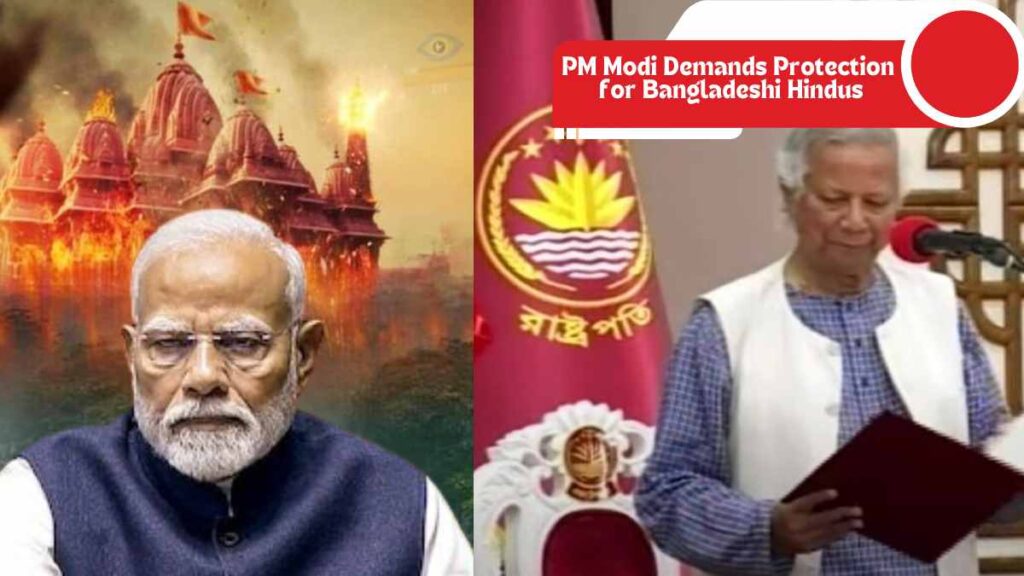Indian Prime Minister Narendra Modi has called on Bangladesh’s new interim government, led by Muhammad Yunus, to prioritize the protection of the Bangladeshi Hindu minority. This appeal comes as Bangladesh prepares for upcoming elections under Yunus’s leadership, raising concerns about regional stability and minority rights.
The Context of Muhammad Yunus’s Return
- Political Shift: Muhammad Yunus has returned to Bangladesh after a long absence and is now leading the interim government. His return marks a significant shift in the political landscape, as Bangladesh gears up for elections. Yunus’s emotional return, marked by a tearful reunion with his homeland, reflects the gravity of the current situation.
- Historical Concerns: The focus on Yunus’s return brings to light past issues of cross-border terrorism that once strained India-Bangladesh relations. Under Sheikh Hasina’s administration, cross-border terrorism from Bangladesh to India was significantly reduced. However, with Yunus’s interim government, there is apprehension about a possible resurgence of these concerns.
PM Modi’s Advocacy for Bangladeshi Hindus
- Call for Protection: PM Modi’s statement is a rare intervention, making him the first Indian leader to explicitly address the safety of Bangladeshi Hindus. His call emphasizes the importance of ensuring that minority communities are protected during this period of political transition in Bangladesh.
- India-Bangladesh Relations: Modi’s advocacy reflects ongoing concerns about the stability and safety of minority communities. The current political scenario raises questions about the future of India-Bangladesh relations, particularly in light of past issues related to cross-border terrorism and minority rights.
Historical Background and Yunus’s Legacy
- Sheikh Hasina’s Era: Under Sheikh Hasina, Bangladesh saw a significant reduction in cross-border terrorism, fostering stronger ties with India. However, the current political climate raises fears of a return to earlier issues, reminiscent of the period around 2006 when cross-border terrorism was a major concern.
- Muhammad Yunus’s Achievements: Yunus, a Nobel Peace Prize laureate, is renowned for founding the Grameen Bank and pioneering microfinance. Despite his contributions, he has faced criticism and allegations from Sheikh Hasina’s government, including accusations of corruption and high interest rates. His return has reignited discussions about his political influence and past controversies.
Future Prospects
International Response: PM Modi’s public endorsement of Yunus and his call for the protection of Bangladeshi Hindus highlight the international community’s watchful eye on Bangladesh’s political developments. Modi’s support underscores the importance of maintaining focus on minority rights and regional stability.
Election Uncertainty: The interim government’s timeline and Yunus’s role as chief adviser are uncertain, with elections expected but not yet scheduled. This uncertainty contributes to concerns about the future of Bangladesh’s political stability and its impact on regional relations.
Conclusion
As Bangladesh navigates its political transition under Muhammad Yunus, PM Modi’s appeal for the protection of Bangladeshi Hindus serves as a critical reminder of the need to uphold minority rights. The evolving situation raises questions about the future of India-Bangladesh relations and the potential resurgence of past issues. The international community will be closely watching the developments as Bangladesh prepares for its next electoral phase.
What impact do you think PM Modi’s advocacy for Bangladeshi Hindus will have on regional politics? Share your thoughts in the comments below!

